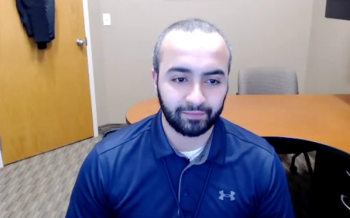
Neuropathy is an adverse effect that can occur when enfortumab veodtin is administered to patients with locally advanced or metastatic urothelial carcinoma.

Your AI-Trained Oncology Knowledge Connection!


Neuropathy is an adverse effect that can occur when enfortumab veodtin is administered to patients with locally advanced or metastatic urothelial carcinoma.
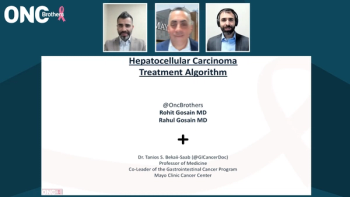
Tanios S. Bekaii-Saab, MD, discusses safety profile considerations for patients undergoing treatment for hepatocellular carcinoma, and the Oncology Brothers recap the entire discussion.

Turning the focus to advanced-stage HCC, Tanios S. Bekaii-Saab, MD, offers comprehensive insights on first- and second-line treatment options.

Medical oncologists outline localized therapy options for patients with early- and intermediate-stage hepatocellular carcinoma.

Tanios S. Bekaii-Saab, MD, joins Rahul Gosain, MD, and Rohit Gosain, MD, to discuss treatment practices for early- and intermediate-stage hepatocellular carcinoma.

Data highlight that patients who are in Black and poor majority areas are less likely to receive liver ablation or colorectal liver metastasis in surgical cancer care.

Findings highlight how systemic issues may impact disparities in outcomes following surgery for patients with cancer, according to Muhammad Talha Waheed, MD.

Focusing on the BESPOKE CRC study, John H. Strickler, MD, reviews recent updates presented at ASGO GI 2024 and discusses subset analyses from the trial.

Clinical insights on treatment sequencing and the role of talquetamab, highlighting its safety profile in patients with multiple myeloma.

Turning the focus back to the clinical scenario, Donna Catamero, ANP-BC, OCN, CCRC, discusses the patient’s repeat diagnostic workup and the panel provides their insights on treatment decisions.

An overview of the rationale and study design of the INTERCEPT study in patients with colorectal cancer, with a focus on the early key findings.
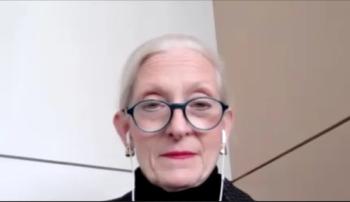
Pegulicianine-guided breast cancer surgery may allow practices to de-escalate subsequent radiotherapy, says Barbara Smith, MD, PhD.
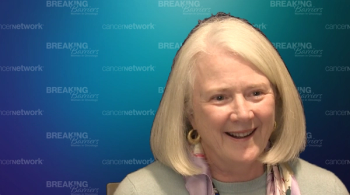
A long commute can significantly impact your work-life balance, according to Mary-Ellen Taplin, MD.
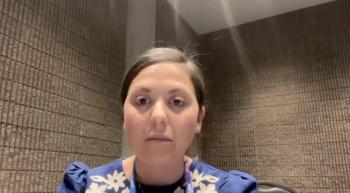
Adrienne Bruce Shannon, MD, discussed ways to improve treatment and surgical outcomes for patients with dMMR gastroesophageal cancer.

The panel discusses key learnings from recent studies in non-clear cell RCC subtypes and the need to better understand disease biology to develop optimized, histology-specific therapies rather than extrapolating clear cell treatment approaches.

Barbara Smith, MD, PhD, spoke about the potential use of pegulicianine-guided breast cancer surgery based on reports from the phase 3 INSITE trial.

Mary-Ellen Taplin, MD, spoke about working in genitourinary oncology and how she has maneuvered the field as a woman.

Lymphedema is a common adverse effect and may negatively impact a patient’s body image.

Patient-reported symptoms following surgery appear to improve with the use of perioperative telemonitoring, says Kelly M. Mahuron, MD.

Lymphedema is an adverse effect associated with breast cancer treatment, and patients should be monitored for these symptoms.

Treatment options in the refractory setting must improve for patients with resected colorectal cancer peritoneal metastasis, says Muhammad Talha Waheed, MD.
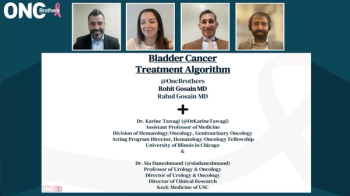
The Oncology Brothers recap the discussion on treatment practices for patients with bladder cancer.

Focusing on the metastatic setting, the expert panel discusses advanced kidney cancer treatment practices, highlighting recent data that are informing treatment decisions.

Karine Tawagi, MD, and Sia Daneshmand, MD, offer comprehensive insights on treatment practices for patients with muscle-invasive bladder cancer.

Sia Daneshmand, MD, and Karine Tawagi, MD, join Rahul Gosain, MD, and Rohit Gosain, MD, to discuss the treatment algorithm for non–muscle-invasive bladder cancer.

Cancer vaccines are a “cross-cutting approach” that may be applicable across several cancer types, according to Catherine J. Wu, MD.
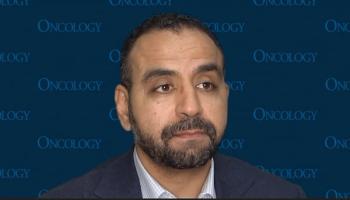
Although immature, overall survival data from the KEYNOTE-868 trial may support the use of pembrolizumab plus chemotherapy in patients with endometrial cancer.

Focusing on patient education, the panel outlines resources available to help patients with multiple myeloma navigate their treatment journey.
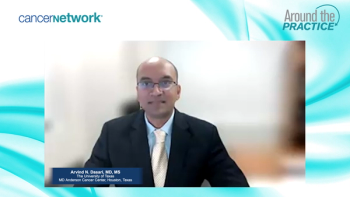
Arvind N. Dasari, MD, MS, presents the third patient profile of the discussion, a 62-year-old woman with colon cancer, highlighting the role of MRD testing in guiding treatment decisions in the surveillance setting.
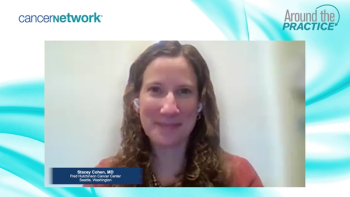
Stacey Cohen, MD, reviews the initial results from the phase 2 COBRA study focused on ctDNA as a predictive biomarker in adjuvant chemotherapy for patients with stage II colon cancer.